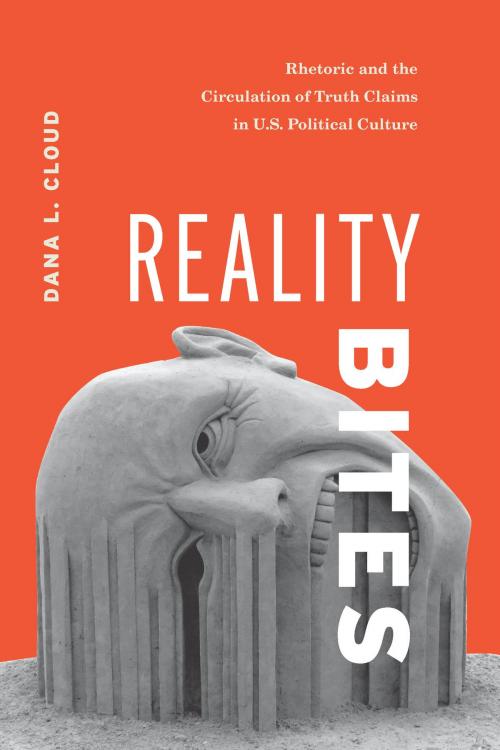Reality Bites
Rhetoric and the Circulation of Truth Claims in U.S. Political Culture
Nonfiction, Reference & Language, Language Arts, Public Speaking, Rhetoric, Communication| Author: | Dana L. Cloud | ISBN: | 9780814276051 |
| Publisher: | Ohio State University Press | Publication: | February 17, 2018 |
| Imprint: | Ohio State University Press | Language: | English |
| Author: | Dana L. Cloud |
| ISBN: | 9780814276051 |
| Publisher: | Ohio State University Press |
| Publication: | February 17, 2018 |
| Imprint: | Ohio State University Press |
| Language: | English |
Fake news, alternative facts, post truth—terms all too familiar to anyone in U.S. political culture and concepts at the core of Dana L. Cloud’s new book, *Reality Bites, *which explores truth claims in contemporary political rhetoric in the face of widespread skepticism regarding the utility, ethics, and viability of an empirical standard for political truths. Cloud observes how appeals to truth often assume—mistakenly—that it is a matter of simple representation of facts. However, since neither fact-checking nor “truthiness” can respond meaningfully to this problem, she argues for a rhetorical realism—the idea that communicators can bring knowledge from particular perspectives and experiences into the domain of common sense.
Through a series of case studies—including the PolitiFact fact-checking project, the Planned Parenthood “selling baby parts” scandal, the Chelsea Manning and Edward Snowden cases, Neil DeGrasse Tyson’s Cosmos, the rhetoric of Thomas Paine and the American Revolution, and the Black Lives Matter movement—Cloud advocates for the usefulness of narrative, myth, embodiment, affect, and spectacle in creating accountability in contemporary U.S. political rhetoric. If dominant reality “bites”—in being oppressive and exploitative—it is time, Cloud argues, for those in the reality-based community to “bite back.”
Fake news, alternative facts, post truth—terms all too familiar to anyone in U.S. political culture and concepts at the core of Dana L. Cloud’s new book, *Reality Bites, *which explores truth claims in contemporary political rhetoric in the face of widespread skepticism regarding the utility, ethics, and viability of an empirical standard for political truths. Cloud observes how appeals to truth often assume—mistakenly—that it is a matter of simple representation of facts. However, since neither fact-checking nor “truthiness” can respond meaningfully to this problem, she argues for a rhetorical realism—the idea that communicators can bring knowledge from particular perspectives and experiences into the domain of common sense.
Through a series of case studies—including the PolitiFact fact-checking project, the Planned Parenthood “selling baby parts” scandal, the Chelsea Manning and Edward Snowden cases, Neil DeGrasse Tyson’s Cosmos, the rhetoric of Thomas Paine and the American Revolution, and the Black Lives Matter movement—Cloud advocates for the usefulness of narrative, myth, embodiment, affect, and spectacle in creating accountability in contemporary U.S. political rhetoric. If dominant reality “bites”—in being oppressive and exploitative—it is time, Cloud argues, for those in the reality-based community to “bite back.”















